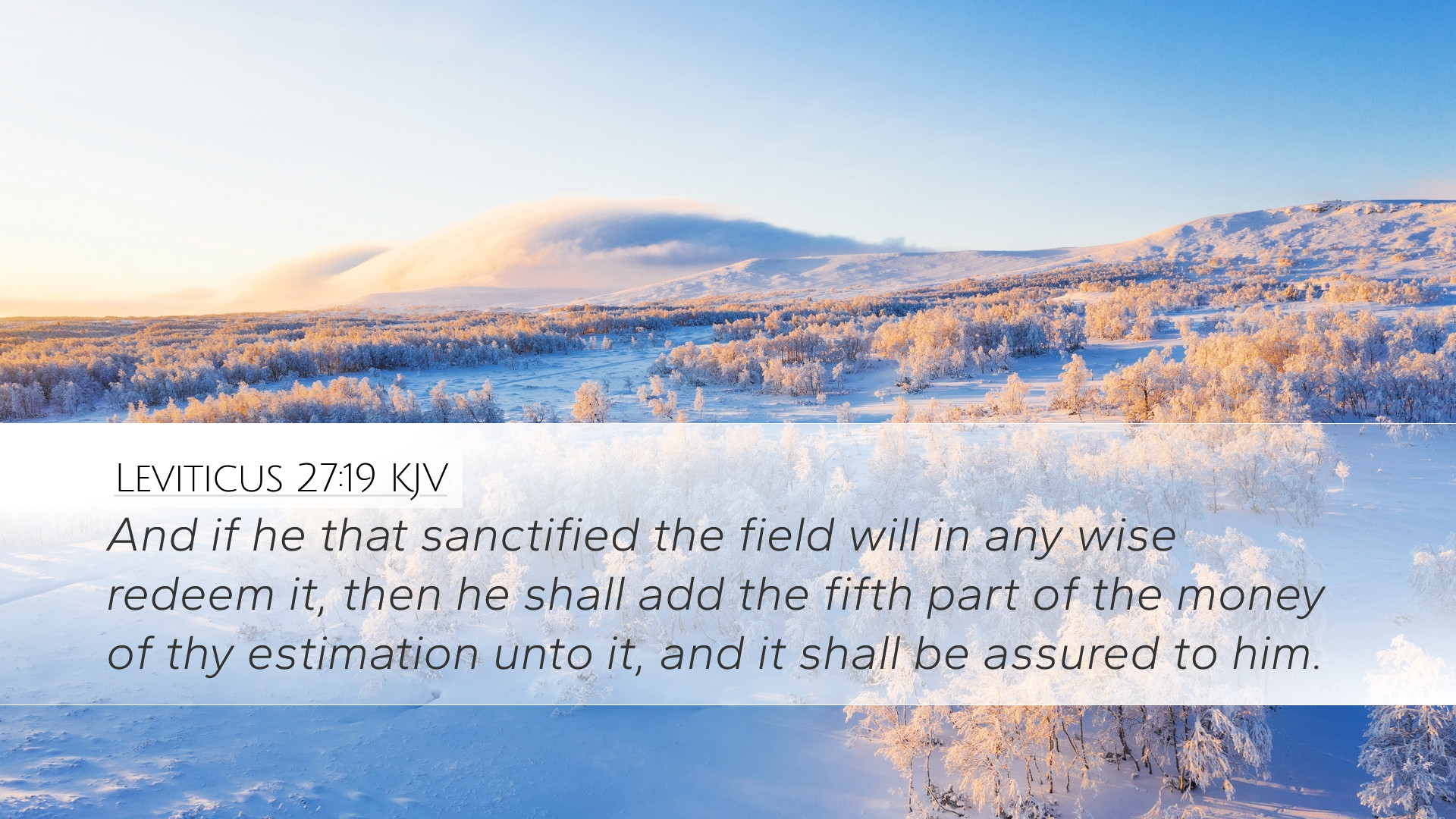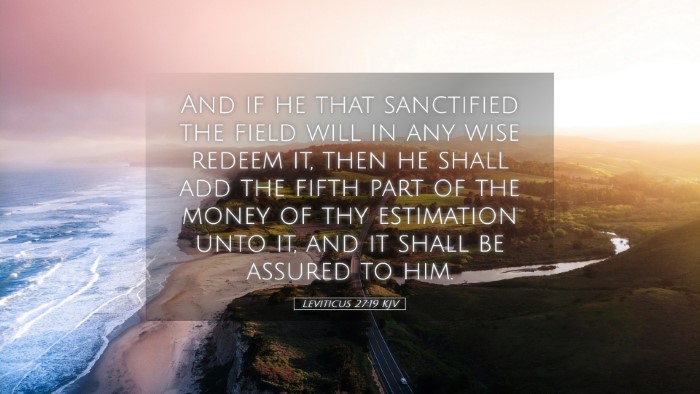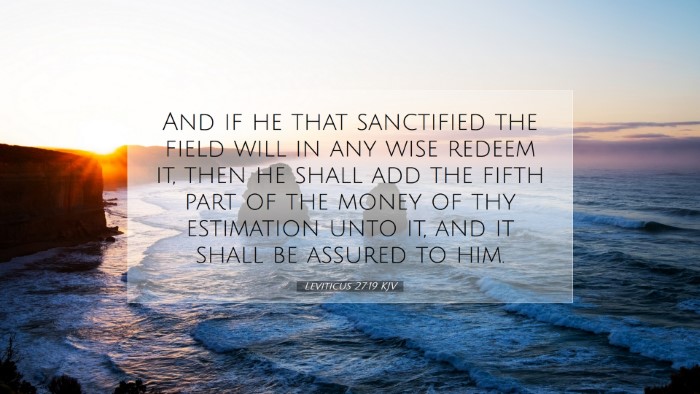Commentary on Leviticus 27:19
Verse Text: "And if he that sanctified the field shall ever think upon the jubilee, then the field shall be sold according to the estimation thereof."
Introduction
The context of Leviticus 27 presents laws concerning vows, specifically those involving pledges or consecrations made to God. Among these teachings, the passage in verse 19 addresses the principles of redemptive rights related to property and observations during the Jubilee year. The significance of this regulation intertwines with themes of redemption, ownership, and the restoration of God’s order among His people.
Contextual Analysis
To fully grasp Leviticus 27:19, it is essential to examine its placement within the broader narrative of Leviticus, which primarily focuses on holiness and the appropriate conduct of Israel as a chosen nation. Matthew Henry highlights that the laws regarding property were divinely instituted to maintain equity and social justice among the Israelites. This specific verse emphasizes the ongoing relationship between God’s ordinances and the management of material possessions.
Theological Implications
Ownership and Divine Sovereignty: Adam Clarke points out that all land ultimately belongs to God, who is the creator and sustainer of all things. The Israelites were stewards of the land rather than owners in perpetuity. Hence, even when they made vows concerning their property, these vows had to align with God’s overarching sovereign plans, particularly concerning the Sabbath and Jubilee laws, which reflected His intention for periodic restoration and equity.
Redemption and Jubilee: In considering the implications of the Jubilee, Albert Barnes suggests that the celebration of the Jubilee points to the importance of redemptive relationships, not merely between individuals but between the people and God. The law's reminder that fields must revert to original owners serves as a constant reminder of God's mercy and grace, even within human transactions. It encapsulates the essence of hope and the assurance that God restores what has been lost or surrendered.
Practical Insights for Contemporary Believers
For pastors, students, and theologians, understanding the significance of this scripture goes beyond historical analysis. It encourages a deeper engagement with the themes of stewardship and redemption in our lives today.
- Stewardship: Every believer is called to steward their resources—including finances, time, and talents—as gifts from God. This passage urges an evaluation of how we perceive ownership: is it merely about possession, or does it align with divine stewardship?
- Redemption: As we consider the implications of redemption that runs through the text, it is essential to reflect on the redemptive work of Christ. In a spiritual sense, what does it mean to experience restoration in Christ as we manage our "fields"?
- Community: The Jubilee principle maintains a sense of communal responsibility among believers. It calls individuals to reflect on how they can contribute to the restoration efforts in their communities through acts of sharing, forgiveness, and support.
Conclusion
In summary, Leviticus 27:19 serves as a crucial reminder of God’s overarching sovereignty over creation and the principles of justice, mercy, and redemption that He instills in His laws. Through a careful exegesis of this verse, believers can engage with rich theological insights that transcend time, calling them to live out their faith with integrity and a heart for restoration.


